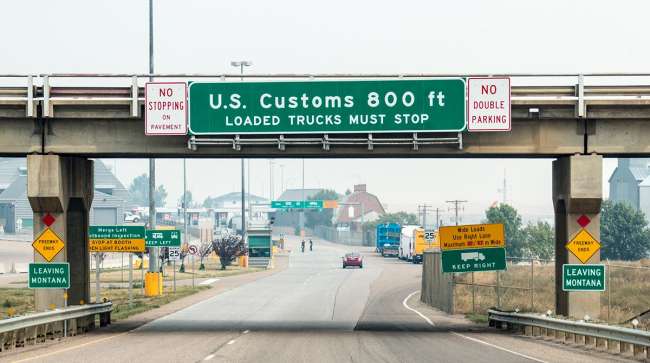US Says ‘Some Progress’ Was Made at Latest NAFTA Talks

The U.S., Canada and Mexico said they’ve made some progress in the latest round of NAFTA talks, while America’s trade chief warned he’d like negotiations to speed up.
U.S. Trade Representative Robert Lighthizer, Canadian Foreign Minister Chrystia Freeland and Mexican Economy Minister Ildefonso Guajardo met privately in Montreal on Jan. 29 before making a joint appearance before the press. The more positive mood since the last time the trade chiefs met three months ago suggested that a collapse of the talks wasn’t imminent.
RELATED: Mayors, ambassadors urge NAFTA preservation as talks press on
Lighthizer said “some progress was made” in the latest round, including on some of the toughest issues. Freeland said she was pleased with progress so far and Guajardo said the three countries are on the “right track” to reach a deal.
“We finally began to discuss some of the core issues, so this round was a step forward. But we are progressing very slowly,” Lighthizer said. “We owe it to our citizens who are operating in a state of uncertainty to move much faster.”
The peso pared its loss to 0.3% after Guajardo, who spoke first at the press conference, said that there had been many advances at the Montreal talks. The currency then dipped again after Lighthizer spoke.
RELATED: Forget NAFTA. The trade war with Canada has already started
While NAFTA looks to be salvaged for now, talks could run for months or into next year as the three hash out differences. The press conference capped round six, where negotiators over the past week agreed on a proposal related to fighting corruption. That followed agreements in previous rounds on small- and medium-sized businesses and competition.
Withdrawal Threat
Hanging over talks is U.S. President Donald Trump’s threat to quit the 24-year-old trade pact. Trump has regularly called it a horrible deal and blamed it for U.S. manufacturing job losses, pledging as recently as last week to renegotiate or give a sixth-month notice of withdrawal. Trump, speaking separately on Jan. 29, said a key feature of his State of the Union address on Jan. 30 will be the need for more fair and reciprocal trade.
In his remarks, Lighthizer took aim at Canada in particular, saying its recent World Trade Organization challenge against the U.S. is “a massive attack on all of our trade laws.” He also rejected a Canadian proposal on content rules for cars in NAFTA, saying it would reduce the share of a vehicle made within the region. “This is the opposite of what we are trying to do,” said Lighthizer.
Guajardo said the countries are making progress with flexibility from all three nations. “We still have substantial challenges to overcome. Yet the progress made so far put us on the right track to create landing zones to conclude this process,” he said. Freeland praised the work of negotiators. “That work, I’m pleased to say, is beginning to bear fruit,” she said.
More Positive
Lighthizer’s comments were more positive than the trio’s previous joint appearance in Washington in October, when he said he was “surprised and disappointed” by Canadian and Mexican positions so far. The Montreal gathering was the trio’s first since October, as they skipped subsequent meetings in Mexico City and Washington.
The most contentious U.S. demands are on the automotive industry, dairy and agriculture, dispute panels, government procurement and a five-year sunset clause that would kill NAFTA unless the three agree to extend it. This round saw Canadian “ideas” — officials wouldn’t call them them formal counter-proposals — on changing how a car’s value is calculated and adding periodic review, rather than a termination clause. Canada and Mexico have also threatened to keep some form of their own investor dispute system that the U.S. wants to opt out of.
Lighthizer said on Jan. 29 that he wants to see “major breakthroughs” before the next round of NAFTA talks, which is scheduled for Mexico City in late February.
With assistance by Justin Villamil

